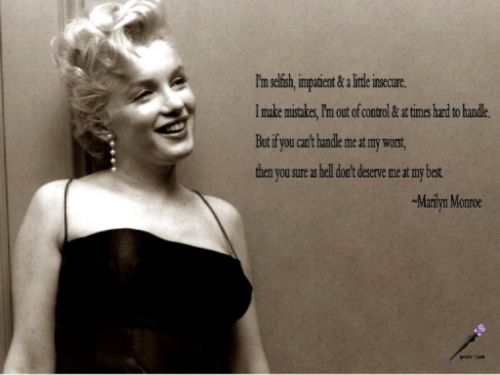|
|
| FAQ/Help |
| Calendar |
| Search |
|
#1
|
||||
|
||||
|
I am supposed to start emdr next week. However it is an hour drive each way and I am wondering, with digging into old memories I prefer to forget, how emotional I will be after. Should I take someone along or have someone check on me occationally? How intense does this really get?
__________________
Dx: Bipolar 1 Ultradian Rapid Cycling w/ Psychosis & Compex PTSD w/ Dissociative Features |
Out There
|
|
#2
|
||||
|
||||
|
Quote:
|
|
#3
|
|||
|
|||
|
Quote:
Phase 2 involves preparing for memory processing or desensitization (memory processing or desensitization - phases 3-6 - is often what is referred to as "EMDR" which is actually an 8-phase method of psychotherapy). In this phase resources are "front-loaded" so that you have a "floor" or "container" to help with processing the really hard stuff, as well as creating strategies if you're triggered in everyday life. In Phase 2 you learn a lot of great coping strategies and self-soothing techniques which you can use during EMDR processing or anytime you feel the need. In phase 2 you learn how to access a “Safe or Calm Place” which you can use at ANY TIME during EMDR processing (or on your own) if it feels scary, or too emotional, too intense. One of the key assets of EMDR therapy is that YOU, the client, are in control NOW, even though you weren’t in the past, during traumatic events, or whatever disturbance(s) on which you’re working. You NEVER need re-live an experience or go into great detail, ever! You NEVER need to go through the entire memory. YOU can decide to keep the lights (or the alternating sounds and/or tactile pulsars, or the waving hand, or any method of bilateral stimulation that feels okay to you) going, or stop them, whichever helps titrate – measure and adjust the balance or “dose“ of the processing. During EMDR processing there are regular “breaks” and you can control when and how many but the therapist should be stopping the bilateral stimulation every 25-50 passes of the lights to ask you to take a deep breath and say just a bit of what you’re noticing, anything different, any changes. (The stimulation should not be kept on continuously, because there are specific procedures that need to be followed to process the memory). The breaks help keep a “foot in the present” while you’re processing the past. Again, and I can’t say this enough, YOU ARE IN CHARGE so YOU can make the process tolerable. And your therapist should be experienced in the EMDR therapy techniques that help make it the gentlest and safest way to detoxify bad life experiences and build resources. Grounding exercises are essential. You can use some of the techniques in Dr. Shapiro's new book "Getting Past Your Past: Take Control of Your Life with Self-Help Techniques from EMDR." Dr. Shapiro is the founder/creator of EMDR but all the proceeds from the book go to two charities: the EMDR Humanitarian Assistance Program and the EMDR Research Foundation). The book is an easy read, helps you understand what's "pushing" your feelings and behavior, helps you connect the dots from past experiences to current life. Also gives lots of really helpful ways that are used during EMDR therapy to calm disturbing thoughts and feelings. Pacing and dosing are critically important. So if you ever feel that EMDR processing is too intense then it might be time to go back over all the resources that should be used both IN session and BETWEEN sessions. I can't say enough good things about EMDR therapy. It's changed my life both as a person/consumer, and as a therapist. It has been so satisfying to have someone come in for help and then to witness them get through their issues and finish therapy relatively quickly (compared to regular talk therapy, it's like night and day). I am both humbled by and grateful for this wonderful method that heals suffering. |
|
#4
|
||||
|
||||
|
I will be starting EMDR soon too, so I'm glad you posed this question and for the detailed responses. I won't start next week, maybe in a week or two, but I'd be glad to offer support. We can do this journey together if you like.
 I'm pretty scared and nervous about it, but from what was said above and from what my therapist said, it seems very effective and gentle.
__________________
 Be uniquely you, because you are a beautiful person regardless of whatever diagnosis you have. Bipolar Type II with Psychotic Features PTSD with Dissociative Features Borderline Personality Disorder ADD Social Phobia Creative Writer and Artist Genderfluid |
czarina1984, Out There
|
| Reply |
|
|